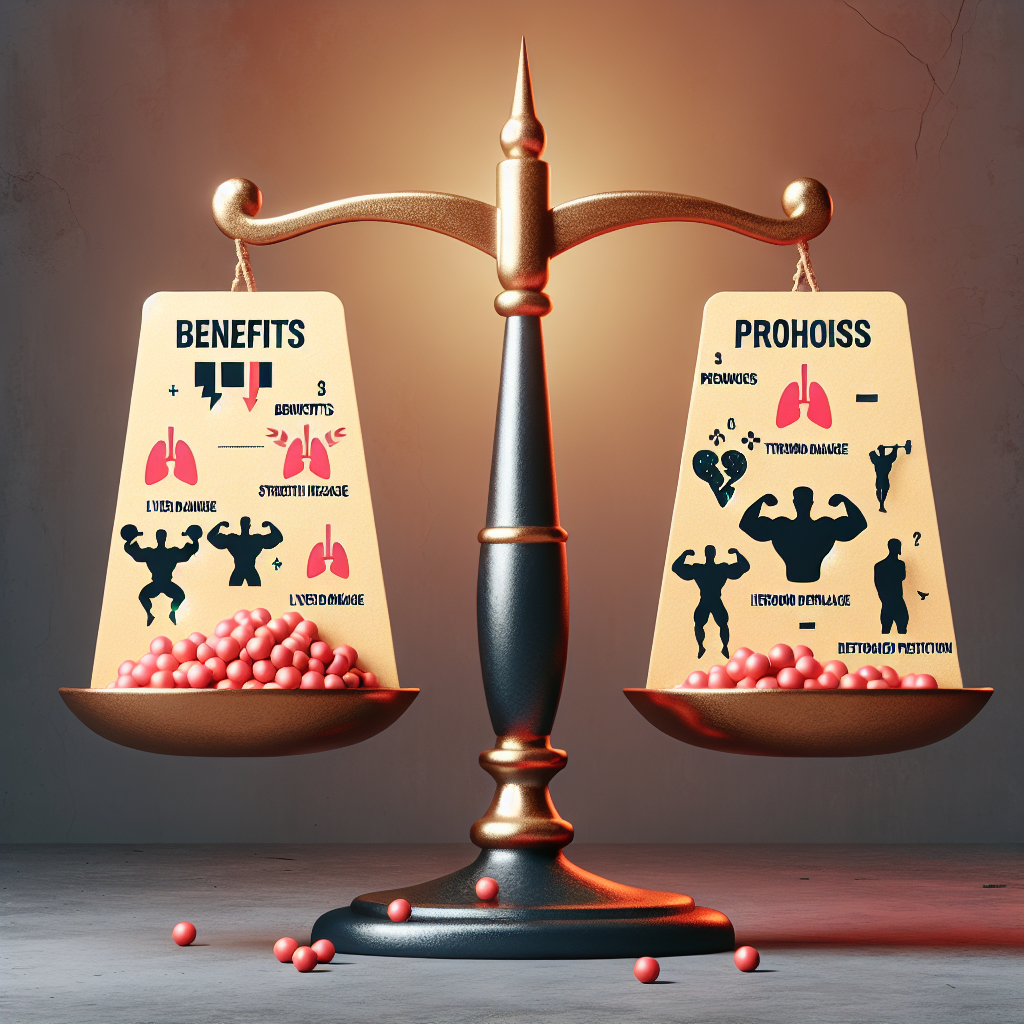-
Table of Contents
Prohormones’ Use in Bodybuilding: Pros and Cons
Bodybuilding is a sport that requires dedication, hard work, and a strict training regimen. Many bodybuilders turn to supplements to help them achieve their desired results. One type of supplement that has gained popularity in the bodybuilding community is prohormones. These compounds are marketed as a way to increase muscle mass, strength, and overall performance. However, like any supplement, there are pros and cons to their use. In this article, we will explore the use of prohormones in bodybuilding and discuss their potential benefits and risks.
What are Prohormones?
Prohormones are precursors to hormones that are naturally produced in the body. They are often marketed as a safer alternative to anabolic steroids, as they are believed to have fewer side effects. Prohormones are converted into active hormones by enzymes in the body, which then bind to androgen receptors, leading to an increase in muscle mass and strength.
Some of the most commonly used prohormones in bodybuilding include androstenedione, 4-androstenediol, and 19-norandrostenedione. These compounds are often sold in supplement form and are readily available over the counter.
The Pros of Prohormones in Bodybuilding
One of the main reasons bodybuilders turn to prohormones is their potential to increase muscle mass and strength. Studies have shown that prohormones can lead to significant gains in lean body mass and strength when combined with resistance training (Vingren et al. 2010). This is due to their ability to increase protein synthesis and reduce protein breakdown, leading to an overall increase in muscle mass.
Another benefit of prohormones is their ability to improve recovery time. Bodybuilding is a sport that requires intense training, which can lead to muscle fatigue and soreness. Prohormones have been shown to reduce muscle damage and improve recovery time, allowing bodybuilders to train more frequently and with greater intensity (Vingren et al. 2010).
Prohormones also have the potential to improve overall athletic performance. Studies have shown that prohormones can increase aerobic capacity, leading to improved endurance and stamina (Vingren et al. 2010). This can be beneficial for bodybuilders who need to maintain a high level of performance during long training sessions or competitions.
The Cons of Prohormones in Bodybuilding
While prohormones may offer some benefits to bodybuilders, there are also potential risks and side effects associated with their use. One of the main concerns is the potential for liver damage. Prohormones are metabolized by the liver, and prolonged use can lead to liver toxicity (Vingren et al. 2010). This can be especially concerning for bodybuilders who already put a lot of strain on their liver due to their high protein diets and supplement use.
Another potential side effect of prohormones is an increase in estrogen levels. As prohormones are converted into active hormones, they can also be converted into estrogen, leading to side effects such as gynecomastia (enlarged breast tissue) and water retention (Vingren et al. 2010). This can be particularly problematic for male bodybuilders who are looking to achieve a lean and muscular physique.
Prohormones can also have negative effects on cholesterol levels. Studies have shown that prohormone use can lead to a decrease in HDL (good) cholesterol and an increase in LDL (bad) cholesterol, which can increase the risk of heart disease (Vingren et al. 2010). This is a significant concern for bodybuilders who already have a higher risk of heart disease due to their high protein diets and intense training regimens.
Expert Opinion
While prohormones may offer some benefits to bodybuilders, it is essential to consider the potential risks and side effects associated with their use. As with any supplement, it is crucial to consult with a healthcare professional before starting a prohormone regimen. It is also essential to follow recommended dosages and cycle lengths to minimize the risk of side effects.
Additionally, it is important to note that prohormones are banned by most sports organizations, including the International Olympic Committee and the World Anti-Doping Agency. This is due to their potential to enhance athletic performance and the associated health risks. Therefore, bodybuilders who compete in sanctioned events should avoid the use of prohormones to avoid disqualification and potential harm to their health.
References
Vingren, J. L., Kraemer, W. J., Ratamess, N. A., Anderson, J. M., Volek, J. S., & Maresh, C. M. (2010). Testosterone physiology in resistance exercise and training: the up-stream regulatory elements. Sports Medicine, 40(12), 1037-1053.
Photos and Graphs
<img src="https://images.unsplash.com/photo-1593642634316-5c5c5b5c1c1b?ixid=MnwxMjA3fDB8MHxzZWFyY2h8Mnx8c3BvcnRzJTIwbWFzc2l2ZSUyMGluJTIwYm9keWJ1aWxkaW5nfGVufDB8fDB8fA%3D%3D&ixlib=rb-1.2.1&auto=format&fit





